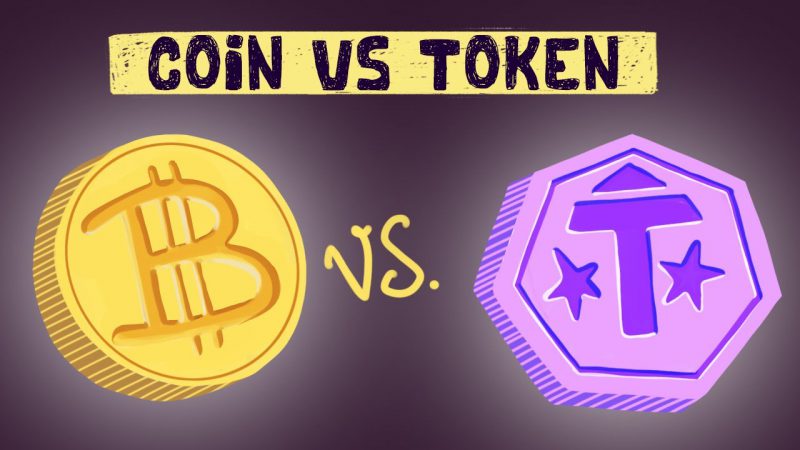We have all heard the terms “crypto coin” and “crypto token.” However, very few understand that there is a stark difference between the two. We often get muddled up and put both in the same category, which should not be the case. The differences between both categories are very significant.
With that said, let’s take a look at…
What is a crypto coin?
When the crypto in question is native to its blockchain and can be exchanged, traded, or utilized for storing value, it is called a “crypto coin.” The coin, thus, is its blockchain’s native currency, as it is issued, or created, directly by the blockchain’s protocol. These coins are often called cryptocurrencies. These currencies are employed for the network’s transaction execution and for rewarding users or providing incentives. They are also used for maintaining network security.
These coins are decentralized in nature, and hence, no one entity controls the transactions. Cryptocurrencies use cryptography to protect the systems. No entity can step in to help users if something goes wrong; hence, transactions are final.
Examples of crypto coins include Bitcoin (BTC), Ethereum (ETH), and Cardano (ADA). All of these currencies use their blockchain network. Bitcoin (BTC) uses a Proof-of-Work consensus mechanism, while Ethereum and Cardano employ Proof-of-Stake consensus.
What is a token?
The digital assets known as crypto tokens are controlled by smart contracts that operate on active blockchains. These tokens are completely different digital assets, but they are closely compatible with the crypto coins on the same network. The majority of token development guidelines are built on the Ethereum platform. The ERC-20 and ERC-721 token standards are two well-known ones. By incorporating smart contracts into the tokens, transactions are made transparent, traceable, and irrevocable.
Some popular crypto tokens include Shiba Inu (SHIB), Axie Infinity (AXS), and Cronos (CRO), among others.
Some tokens offer utilities to holders. Owners of utility tokens have access to a certain application or group of services offered by the Blockchain-based project. Additionally, certain utility tokens provide token owners with savings, rewards, or other benefits.





